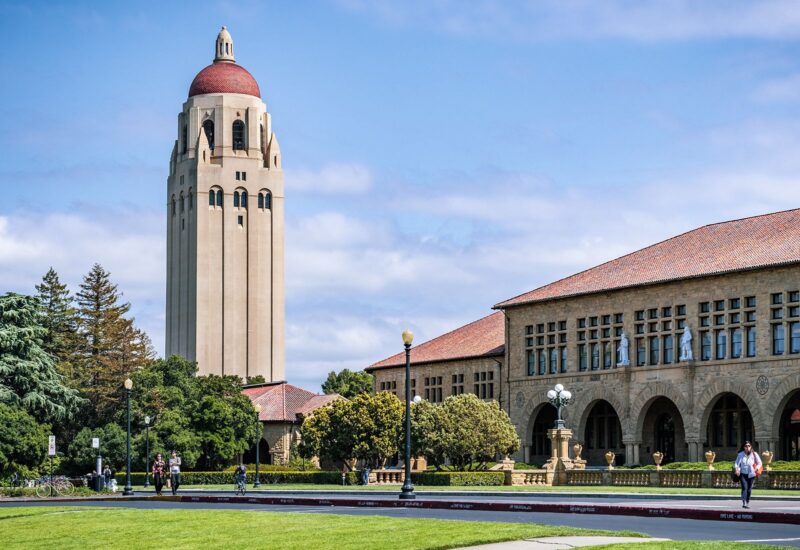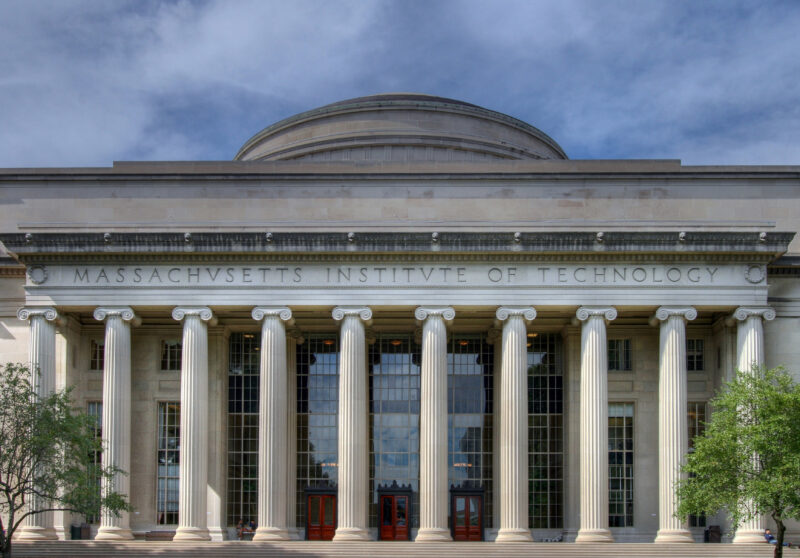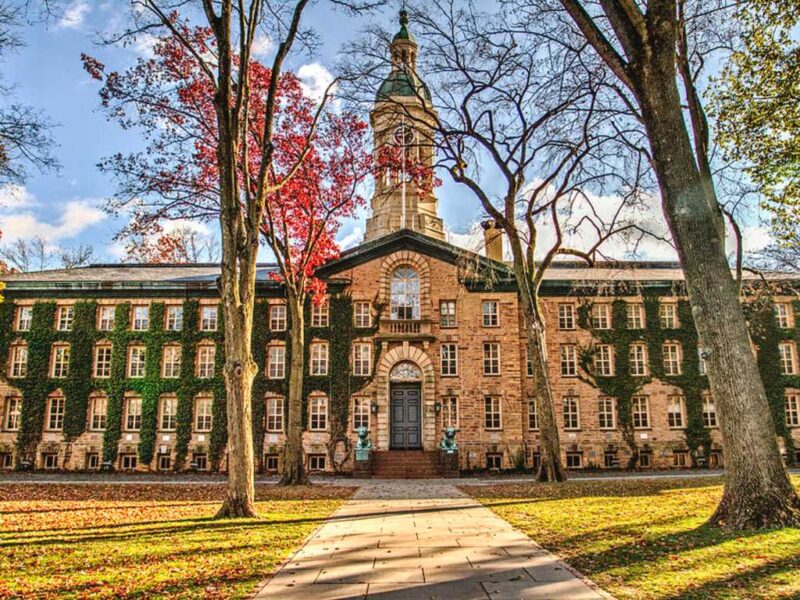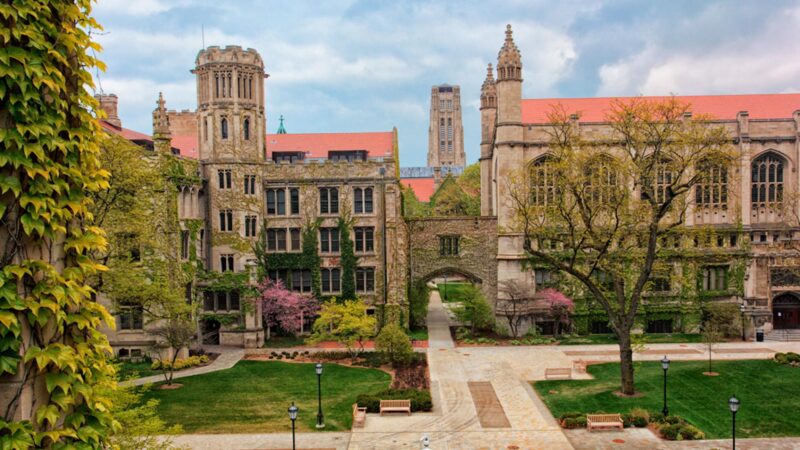In the realm of higher education, certain US colleges stand out not just for their prestigious names but also for their rigorous academic environments, highly competitive admissions processes, and profound impact on various fields. These institutions have become synonymous with excellence, attracting the brightest minds from around the globe. In this article, we delve into seven such colleges, each distinguished by its unique culture, academic rigor, and selectivity.
From the historic halls of Harvard to the innovative landscapes of Stanford, we explore what makes these colleges highly sought after and how they shape the educational and professional trajectories of their students. Understanding these institutions provides insight not only into the pinnacle of American higher education but also into the qualities that make a college truly exceptional.
1. Harvard University

Harvard University is more than just a college; it’s an institution that has become a byword for academic excellence and prestige. Founded in 1636, it is the oldest institution of higher learning in the United States and has a rich history of producing leaders, innovators, and thinkers. Harvard’s academic rigor is renowned, with a curriculum designed to not only impart knowledge but also to challenge and inspire its students. The admissions process is famously selective, seeking students who show not just intellectual prowess but also creativity and leadership potential.
For many students, the dream of attending Harvard begins with services like Paperwriter, which helps them craft essays and applications that stand out. The university’s notable programs span a wide range of fields, from law and medicine to business and the arts, making it a beacon for aspiring students across disciplines. Its alumni include presidents, Nobel laureates, and other distinguished figures, underscoring the university’s influence on a global scale.
2. Stanford University

Located in the heart of Silicon Valley, Stanford University is a hub of innovation, entrepreneurship, and research. Founded in 1885 by Leland and Jane Stanford in memory of their only child, the university has grown into one of the most prestigious in the world. Its sprawling campus is not only a testament to its architectural beauty but also to its academic prowess.
Stanford’s selectivity in admissions is matched by its commitment to academic excellence. The university is known for its cutting-edge research and ability to attract industry-leading faculty and guest speakers. This environment fosters a culture of innovation, making it a breeding ground for new ideas and startups. Stanford’s influence is particularly evident in the technology sector, with many alumni going on to found or lead major tech companies. The university’s blend of rigorous academics, entrepreneurial spirit, and proximity to Silicon Valley makes it a top choice for students aiming to make a mark in the tech world.
3. Massachusetts Institute of Technology

The Massachusetts Institute of Technology, commonly known as MIT, is a bastion of science and technology education. Established in 1861, its mission to advance knowledge in science, technology, and other areas of scholarship has made it a global leader in higher education. At MIT, the academic experience is characterized by a hands-on, problem-solving approach aimed at tackling real-world challenges.
The institute is renowned for its intense academic atmosphere, where innovation and creativity are not just encouraged but are a way of life. Students and faculty at MIT are often at the forefront of breakthroughs in their fields, ranging from computer science and engineering to biology and economics. MIT’s reputation for producing top-tier talent is bolstered by its alumni, many of whom have gone on to become leaders in their respective industries and pioneers in scientific research. The institute’s blend of rigorous academics, a culture of practical problem-solving, and a collaborative environment makes it a beacon for aspiring scientists and engineers around the world.
4. California Institute of Technology

The California Institute of Technology, commonly known as Caltech, is a world-renowned science and engineering research and education institution. Located in Pasadena, California, Caltech is known for its small size but immense impact, particularly in the fields of science and engineering. The institute’s focus is on fostering an environment of rigorous academic inquiry and cutting-edge research.
Caltech’s academic experience is marked by its intensive and focused approach. With a low student-to-faculty ratio, students enjoy close interactions with some of the world’s leading scientists and researchers. The institution is especially noted for its significant contributions to space exploration, with its close relationship with NASA’s Jet Propulsion Laboratory. This unique aspect provides unparalleled opportunities for students to engage in high-level research and practical applications of their learning.
5. Princeton University

Princeton University, one of the oldest universities in the United States, combines a rich historical legacy with a commitment to academic excellence. Known for its picturesque campus and scholarly environment, Princeton places a strong emphasis on undergraduate education while also maintaining high standards in graduate research.
The university is characterized by its rigorous academic programs across the humanities, social sciences, natural sciences, and engineering. Princeton prides itself on its distinctive scholarly community, where students are encouraged to engage deeply with their studies and partake in a vibrant intellectual culture. The university’s contributions to various fields, along with its impressive list of alumni, including US Presidents, Supreme Court Justices, and Nobel laureates, highlight its status as a premier institution of higher learning.
6. Yale University

Yale University stands as a pillar of academic and cultural excellence. Located in New Haven, Connecticut, Yale is known for its comprehensive array of disciplines, with particular strengths in law, arts, and the humanities. The university’s history, dating back to the early 18th century, is interwoven with the development of higher education in America.
Yale’s selective admissions process ensures a student body that is not only academically talented but diverse in interests and backgrounds. The university emphasizes a holistic education, where students are encouraged to develop intellectually, socially, and ethically. Yale’s commitment to both academic rigor and personal growth creates an environment where students are prepared to become leaders and innovators in their respective fields.
7. University of Chicago

The University of Chicago is renowned for its intellectual rigor and emphasis on critical thinking and inquiry. Located in the vibrant city of Chicago, the university is known for its distinguished faculty, rigorous curriculum, and contribution to groundbreaking research, especially in economics and social sciences.
The university’s unique academic ethos is grounded in a belief in the power of ideas and debate. Its core curriculum is designed to challenge students’ perspectives, encouraging them to engage in deep analysis and discussion. The University of Chicago has a long list of notable alumni and faculty, including numerous Nobel laureates, reflecting the institution’s profound impact on various academic fields.
Final Takeaway
These seven US colleges, known for their academic rigor and prestige, represent the epitome of higher education in America. Each institution, with its unique strengths and traditions, contributes significantly to the landscape of higher education and to the development of future leaders, thinkers, and innovators. For students aspiring to join these esteemed institutions, resources such as the best paper writing service can provide invaluable support in navigating the competitive admissions process. Ultimately, these colleges not only challenge and shape the minds of their students but also continue to push the boundaries of knowledge and discovery in various fields.

